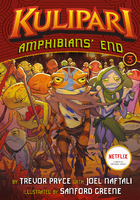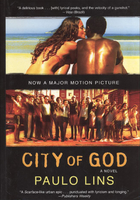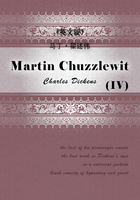THE SECOND THE GOLDEN THREAD
TELLSON'S Bank by Temple Bar was an old-fashioned place, even in the year one thousand seven hundred and eighty. It was very small, very dark, very ugly, very incommodious. It was an old-fashioned place, moreover, in the moral attribute that the partners in the House were proud of its smallness, proud of its darkness, proud of its ugliness, proud of its incommodiousness. They were even boastful of its eminence in those particulars, and were fired by an empress conviction that, if it were less objectionable, it would be less respectable. This was no passive belief, but an active weapon which they flashed at more convenient places of business. Tellson's (they said) wanted no elbow-room, Tellson's wanted no light, Tellson's wanted no embellishment. Noakes and Co.'s might, or Snooks Brothers' might; but Tellson's, thank Heaven!---
Any one of these partners would have disinherited his son on the question of rebuilding Tellson's. In this respect the House was much on a par with the Country; which did very often disinherit its sons for suggesting improvements in laws and customs that had long been highly objectionable, but were only the more respectable.
Thus it had come to pass, that Tellson's was the triumphant perfection of inconvenience. After bursting open a door of idiotic obstinacy with a weak rattle in its throat, you fell into Tellson's down two steps, and came to your senses in a miser-able little shop, with two little counters, where the oldest of men made your cheque shake as if the wind rustled it, while they examined the signature by the dingiest of windows, which were always under a shower-bath of mud from Fleet-street, and which were made the dingier by their own iron bars proper, and the heavy shadow of Temple Bar. If your business necessitated your seeing 'the House,' you were put into a species of Condemned Hold at the back, where you meditated on a misspent life, until the House came with its hands in its pockets, and you could hardly blink at it in the dismal twilight. Your money came out of' or went into, wormy old wooden drawers, particles of which flew up your nose and down your throat when they were opened and shut. Your bank-notes had a musty odour, as if they were fast decomposing into rags again. Your plate was stowed away among the neighbouring cesspools, and evil communications corrupted its good polish in a day or two. Your deeds got into extemporised strong-rooms made of kitchens and sculleries, and fretted all the fat out of their parchments into the banking house air. Your lighter boxes of family papers went up-stairs into a Barmecide room, that always had a great dining-table in it and never had a dinner, and where, even in the year one thousand seven hundred and eighty, the first letters written to you by your old love, or by your little children, were but newly released from the horror of being ogled through the windows, by the heads exposed on Temple Bar with an insensate brutality and ferocity worthy of Abyssinia or Ashantee.
But indeed, at that time, putting to death was a recipe much in vogue with all trades and professions, and not least of all with Tellson's. Death is Nature's remedy for all things, and why not Legislation's? Accordingly, the forger was put to death; the utterer of a bad note was put to Death; the unlawful opener of a letter was put to Death; the purloiner of forty shillings and sixpence was put to Death; the holder of a horse at Tellson's door, who made off with it, was put to Death; the coiner of a bad shilling was put to Death; the sounders of three-fourths of the notes in the whole gamut of Grime, were put to Death. Not that it did the least good in the way of prevention--it might almost have been worth remarking that the fact was exactly the reverse--but, it cleared off (as to this world) the trouble of each particular case, and left nothing else connected with it to be looked after. Thus, Tellson's, in its day, like greater places of business, its contemporaries, had taken so many lives, that, if the heads laid low before it had been ranged on Temple Bar instead of being privately disposed of' they would probably have excluded what little light the ground floor had, in a rather significant manner.
Cramped in all kinds of dim cupboards and hutches at Tellson's, the oldest of men carried on the business gravely.
When they took a young man into Tellson's London house, they hid him somewhere till he was old. They kept him in a dark place, like a cheese, until he had the full Tellson flavour and blue-mould upon him. Then only was he permitted to be seen, spectacularly poring over large books, and casting his breeches and gaiters into the general weight of the establishment.
Outside Tellson's--never by any means in it, unless called in--was an odd-job-man, an occasional porter and messenger, who served as the live sign of the house. He was never absent during business hours, unless upon an errand, and then he was represented by his son: a grisly urchin of twelve, who was his express image. People understood that Tellson's, in a stately way, tolerated the odd-job-man. The house had always tolerated some person in that capacity, and time and tide had drifted this person to the post. His surname was Cruncher, and on the youthful occasion of his renouncing by proxy the works of darkness, in the easterly parish church of Houndsditch, he had received the added appellation of Jerry.
The scene was Mr. Cruncher's private lodging in Hanging-sword-alley, Whitefriars: the time, half-past seven of the clock on a windy March morning, Anno Domini seventeen hundred and eighty. (Mr. Cruncher himself always spoke of the year of our Lord as Anna Dominoes: apparently under the impression that the Christian era dated from the invention of a popular game, by a lady who had bestowed her name upon it.)
Mr. Cruncher's apartments were not in a savoury neighbourhood, and were but two in number, even if a closet with a single pane of glass in it might be counted as one. But they were very decently kept. Early as it was, on the windy March morning, the room in which he lay a-bed was already scrubbed throughout; and between the cups and saucers arranged for breakfast, and the lumbering deal table, a very clean white cloth was spread.
Mr. Cruncher reposed under a patchwork counterpane, like a Harlequin at home. At first, he slept heavily, but, by degrees, began to roll and surge in bed, until he rose above the surface, with his spiky hair looking as if it must tear the sheets to ribbons. At which juncture, he exclaimed, in a voice of dire exasperation:
'Bust me, if she ain't at it agin!'
A woman of orderly and industrious appearance rose from her knees in a corner, with sufficient haste and trepidation to show that she was the person referred to.
'What!' said Mr. Cruncher, looking out of bed for a boot.
'You're at it agin, are you?
After hailing the morn with this second salutation, he threw a boot at the woman as a third. It was a very muddy boot, and may introduce the odd circumstance connected with Mr. Cruncher's domestic economy, that, whereas he often came home after banking hours with clean boots, he often got up next morning to find the same boots covered with clay.
'What,' said Mr. Cruncher, varying his apostrophe after missing his mark--'what are you, up to, Aggerawayter?'
'I was only saying my prayers.
'Saying your prayers! You're a nice woman! What do you mean by flopping yourself down and praying agin me?'
'I was not praying against you; I was praying for you.'
'You weren't. And if you were, I won't be took the liberty with. Here! your mother's a nice woman, young Jerry, going a praying agin your father's prosperity. You've got a dutiful mother, you have, my son. You've got a religious mother, you have, my boy: going and flopping herself down, and praying that the bread-and-butter may be snatched out of the mouth of her only child.'
Master cruncher (who was in his shirt) took this very ill, and, turning to his mother, strongly deprecated any praying away of his personal board.
'And what do you suppose, you conceited female,' said Mr. Cruncher, with unconscious inconsistency, 'that the worth of your prayers may be? Name the price that you put your prayers at!'
'They only come from the heart, Jerry. They are worth no more than that.'
'Worth no more than that,' repeated Mr. Cruncher. 'They ain't worth much, then. Whether or no, I won't be prayed agin, I tell you. I can't afford it. I'm not a going to be made unlucky by your sneaking. If you must go flopping yourself down, flop in favour of your husband and child, and not in opposition to 'em. If I had had any but a unnat'ral wife, and this poor boy had had any but a unnat'ral mother, I might have made some money last week instead of being counter-prayed and countermined and religiously circumwented into the worst of luck. B-u-u-ust me ' said Mr. Cruncher, who all this time had been putting on his clothes, 'if I ain't, what with piety and one blowed thing and another, been choused this last week into as bad luck as ever a poor devil of a honest tradesman met with! Young Jerry, dress yourself, my boy, and while I clean my boots keep a eye upon your mother now and then, and if you see any signs of more flopping, give me a call. For, I tell you,' here he addressed his wife once more, 'I won't be gone agin, in this manner. I am as rickety as a hackneycoach, I'm as sleepy as laudanum, my lines is strained to that degree that I shouldn't know, if it wasn't for the pain in 'em, which was me and which somebody else, yet I'm none the better for it in pocket; and it's my suspicion that you've been at it from morning to night to prevent me from being the better for it in pocket, and I won't put up with it, Aggerawayter, and what do you say now!'
Growling, in addition, such phrases as 'Ah! yes! You're religious, too. You wouldn't put yourself in opposition to the interests of your husband and child, would you? Not you!' and throwing off other sarcastic sparks from the whirling grindstone of his indignation, Mr. Cruncher betook himself to his boot-cleaning and his general preparation for business. In the meantime, his son, whose head was garnished with tenderer spikes, and whose young eyes stood close by one another, as his father's did, kept the required watch upon his mother. He greatly disturbed that poor woman at intervals, by darting out of his sleeping closet, where he made his toilet, with a suppressed cry of 'You are going to flop, mother.--Halloa, father!' and, after raising this fictitious alarm, darting in again with an undutiful grin.
Mr. Cruncher's temper was not at all improved when he came to his breakfast. He resented Mrs. Cruncher's saying grace with particular animosity.
'Now, Aggerawayter! What are you up to? At it agin?'
His wife explained that she had merely 'asked a blessing.'
'Don't do it!' said Mr. Cruncher, looking about, as if he rather expected to see the loaf disappear under the efficacy of his wife's petitions. 'I ain't a going to be blest out of house and home. I won't have my wittles blest off my table. Keep still!'
Exceedingly red-eyed and grim, as if he had been up all night at a party which had taken anything but a convivial turn, Jerry Cruncher worried his breakfast rather than ate it, growling over it like any four-footed inmate of a menagerie. Towards nine o'clock he smoothed his ruffled aspect, and, presenting as respectful and business-like an exterior as he could overlay his natural self with, issued forth to the occupation of the day.
It could scarcely be called a trade, in spite of his favourite description of himself as 'a honest tradesman.' His stock consisted of a wooden stool, made out of a broken-backed chair cut down, which stool, young Jerry, walking at his father's side, carried every morning to beneath the banking-house window that was nearest Temple Bar: where, with the addition of the first handful of straw that could be gleaned from any passing vehicle to keep the cold and wet from the odd-job-man's feet, it formed the encampment for the day. On this post of his, Mr. Cruncher was as well known to Fleet-street and the Temple, as the Bar itself,--and was almost as ill-looking.
Encamped at a quarter before nine, in good time to touch his three-cornered hat to the oldest of men as they passed in to Tellson's, Jerry took up his station on this windy March morning, with young Jerry standing by him, when not engaged in making forays through the Bar, to inflict bodily and mental injuries of an acute description on passing boys who were small enough for his amiable purpose. Father and son, extremely like each other, looking silently on at the morning traffic in Fleet-street, with their two heads as near to one another as the two eyes of each were, bore a considerable resemblance to a pair of monkeys. The resemblance was not lessened by the accidental circumstance, that the mature Jerry bit and spat out straw, while the twinkling eyes of the youthful Jerry were as restlessly watchful of him as of everything else in Fleet-street.
The head of one of the regular indoor messengers attached to Tellson's establishment was put through the door, and the word was given.
'Porter wanted!'
'Hooray, father! Here's an early job to begin with!'
Having thus given his parent God speed, young Jerry seated himself on the stool, entered on his reversionary interest in the straw his father had been chewing, and cogitated.
'Always rusty! His fingers is al-ways rusty!' muttered young Jerry. 'Where does my father get all that iron rust from? He don't get no iron rust here!'















